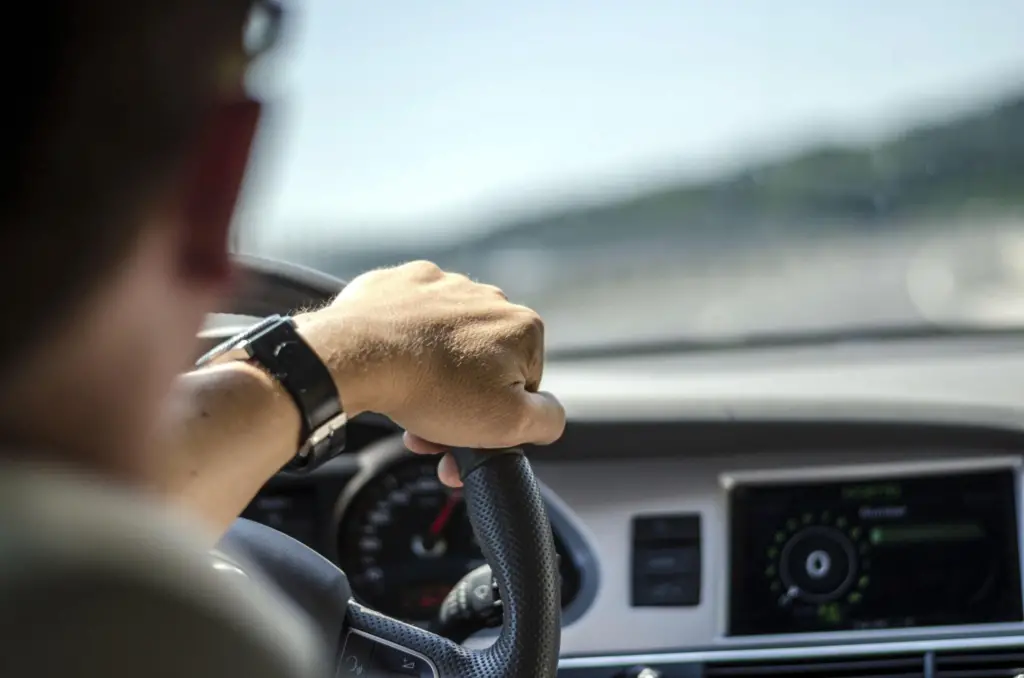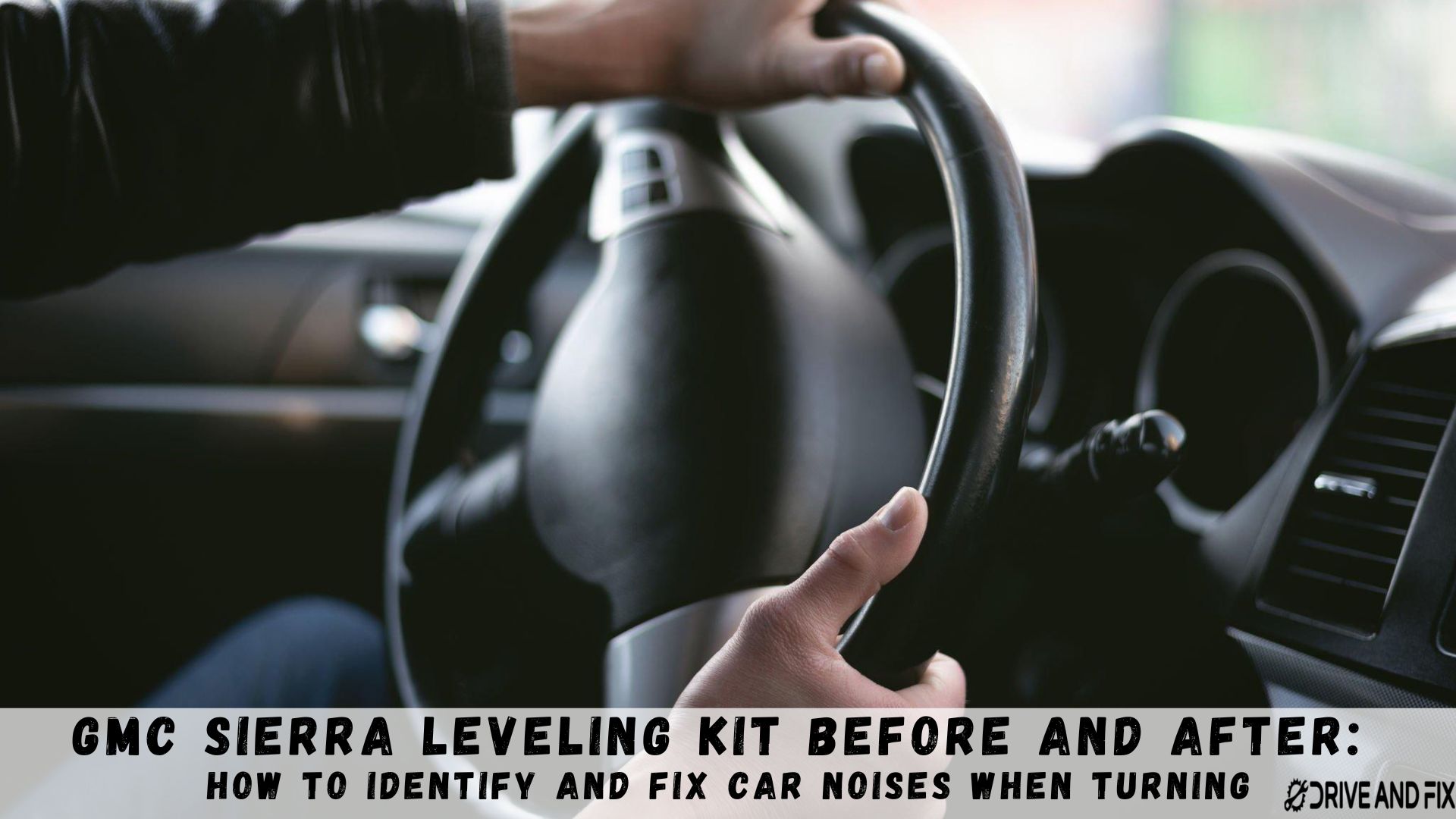Have you ever heard a strange sound from your car as you turn the wheel? Maybe a loud bang, a squeal, or a clunk? If so, you are not alone. Many drivers experience car noise when turning at some point while driving. How can you fix it? Car noise when turning can indicate a serious problem with your steering or suspension system, which can affect your safety and performance on the road. Follow this piece as we discuss the most common causes of car noise, identifying and fixing car noises when turning.
Common Causes of Car Noise When Turning Steering Wheel at Low Speed

Your car may make noise when turning the steering wheel at low speed because of power steering or suspension system problems. Some possible causes and solutions are:
- Low or contaminated power steering fluid
The power steering fluid helps the pump to provide hydraulic pressure to the steering rack and pinion. If the fluid happens to be low or dirty, it can cause a whining or groaning noise when turning the wheel. Check the fluid level and condition and top up or flush it if needed.
- Faulty power steering pump
A belt from the engine drives the power steering pump. It can make a whining or groaning noise if worn out, leaking, or failing. You should inspect the pump and belt for any indications of damage or wear and replace them when necessary.
- The damaged steering rack and pinion
The steering rack and pinion is the part that transfers your steering input to the wheels. It can make a clicking, clunking, or banging noise if broken or loose. Check the rack and pinion for any signs of damage or wear, and replace when needful.
- Worn struts or shocks
These are part of the suspension system that absorbs shocks and vibrations from the road. They can make a sliding or clunking noise if loose, broken, or worn out. Check the struts or shocks for any signs of damage or wear, and replace them whenever needed.
- Bad ball joints
The ball joints connect the steering knuckles and control arms. They can make a creaking or popping noise if worn out or broken. You need to check the ball joints for symptoms of damage or wear and make replacements if necessary.
- Worn steering column bearing or boot
The steering column bearing or boot connects your steering wheel to the steering system. It makes a squealing noise if dry or damaged. You should lubricate the bearing or boot with grease or spray and replace it if necessary.
These are the most common causes of car noise while turning the steering wheel at low speed, but they are not the only ones. If any unusual noise from your car when turning, you should take it to a mechanic for a proper diagnosis and repair as soon as possible. Driving with a noisy car can be dangerous and damage other parts of your vehicle.
How to Identify Car Noises When Turning And Their Meaning

You must consider the sound’s type, location, and frequency. Different noises can indicate problems with your car’s steering or suspension system.
- Clicking
If your car clicks from underneath when turning, it could signal a broken steering rack and pinion. The part that transfers your steering input to the wheels. You may also feel some vibration or play in the steering wheel.
- Sliding or clunking
If a sliding or clunking sound comes from your car’s suspension as you turn, it could signal worn struts or shocks. The parts that absorb shocks and vibrations from the road. You may also notice your car bouncing or swaying more than usual.
- Squealing
When you turn, a squealing sound coming from behind your steering wheel could be a sign of a worn steering column bearing or boot. This part connects your steering wheel to the steering system. You may also notice some play or stiffness in the steering wheel.
- Creaking or popping
That could be a sign of bad ball joints. These parts connect the steering knuckles and control arms. It may also be characterized by some wobbling or vibration in the steering wheel.
- Whining or groaning
This could signal a faulty power steering pump, which provides hydraulic fluid to the power steering system. It could also be shown by some difficulty or stiffness in turning the wheel.
Consequences of Driving With Car Noises When Turning
- Damage to your car
Car noises when turning can indicate problems with your steering or suspension system that can affect other parts of your car. For example, a faulty power steering pump can cause damage to the belt, hoses, rack, and pinion. A worn ball joint can cause damage to the control arm, axle, and wheel. A broken steering rack and pinion can cause damage to the steering column and wheel. These problems can make your car unsafe to drive and costly to repair.
- Loss of control
Car noises when turning can also indicate problems that can affect your ability to steer your car properly. For example, a low or contaminated power steering fluid can make your steering wheel stiff or hard to turn. A worn steering column bearing or boot can make your steering wheel loose or wobbly. A bad wheel bearing or axle can make your wheel lock up or come off. These problems can cause loss of control, leading to an accident.
- Breakdown
Car noises when turning can also indicate problems that can make your car stop working altogether. For example, a loose or worn fan belt can cause your engine to overheat and stall. A broken tie rod can cause your wheels to misalign and prevent you from moving. A snapped accessory belt can cause your alternator, water pump, and air conditioning to fail. These problems can leave you stranded on the road and needing a tow.
What to do About Car Noises When Turning
The best thing to do about the noises is to have an appointment with your mechanic and have them check and fix the problem. Depending on the cause of this e noise, you may need to replace or repair some parts of your steering or suspension system. Ignoring the noises could lead to more serious and costly damage to your car and compromise your safety.
FAQS

Why does my car squeak when turning?
A worn steering column bearing or boot, a dry or damaged power steering system, or a loose or worn fan belt could cause a squeaking noise when turning. To stop the noise, replace, lubricate, or tighten.
Why does my car clunk when turning?
That could be caused by a broken steering rack and pinion, worn struts or shocks, bad ball joints, or loose suspension components. Repair or replace these parts to restore the stability and smoothness of your car.
Why does my car chirp when turning?
This could be a result of a failing wheel bearing or axle. Checked and replaced these parts to prevent your wheels from locking up or coming loose.
How can I prevent car noises when turning?
You can prevent car noises when turning by maintaining your steering and suspension system regularly. That includes checking the fluid levels, inspecting the belts and hoses, lubricating the bearings and joints, and replacing worn or damaged parts. You should also avoid driving over potholes, speed bumps, or rough roads that can damage your car.
Verdict
Any car noises when turning can indicate various problems with your steering or suspension system. These problems can affect your safety and performance on the road and must not be ignored. If you pay attention to the noise’s type, location, and frequency, you can identify the possible cause and solution. However, the best way to prevent or fix car noises when turning is to maintain your vehicle regularly and take it to a mechanic if you hear any unusual sounds. Doing so ensures a smooth and quiet ride.


